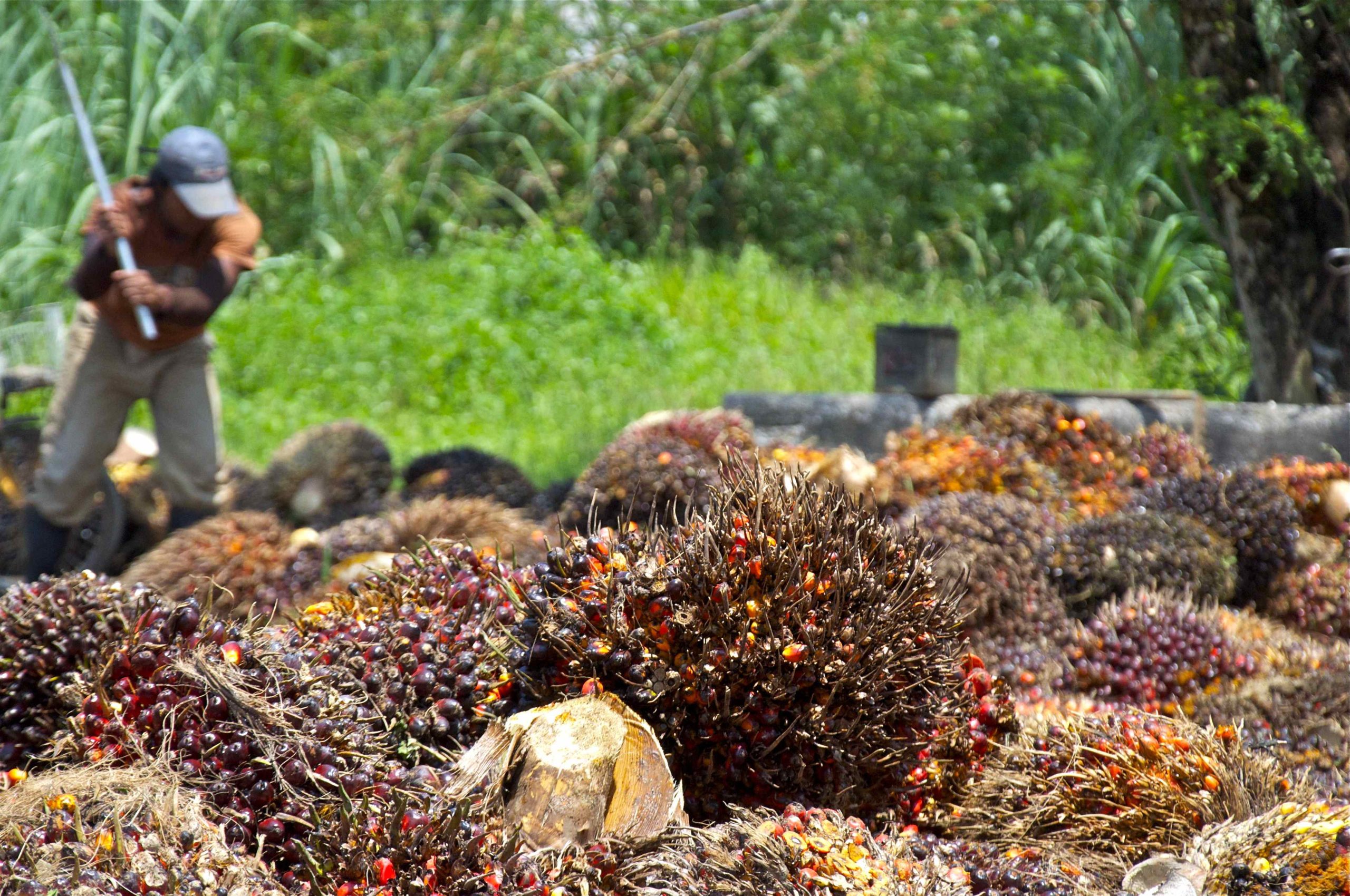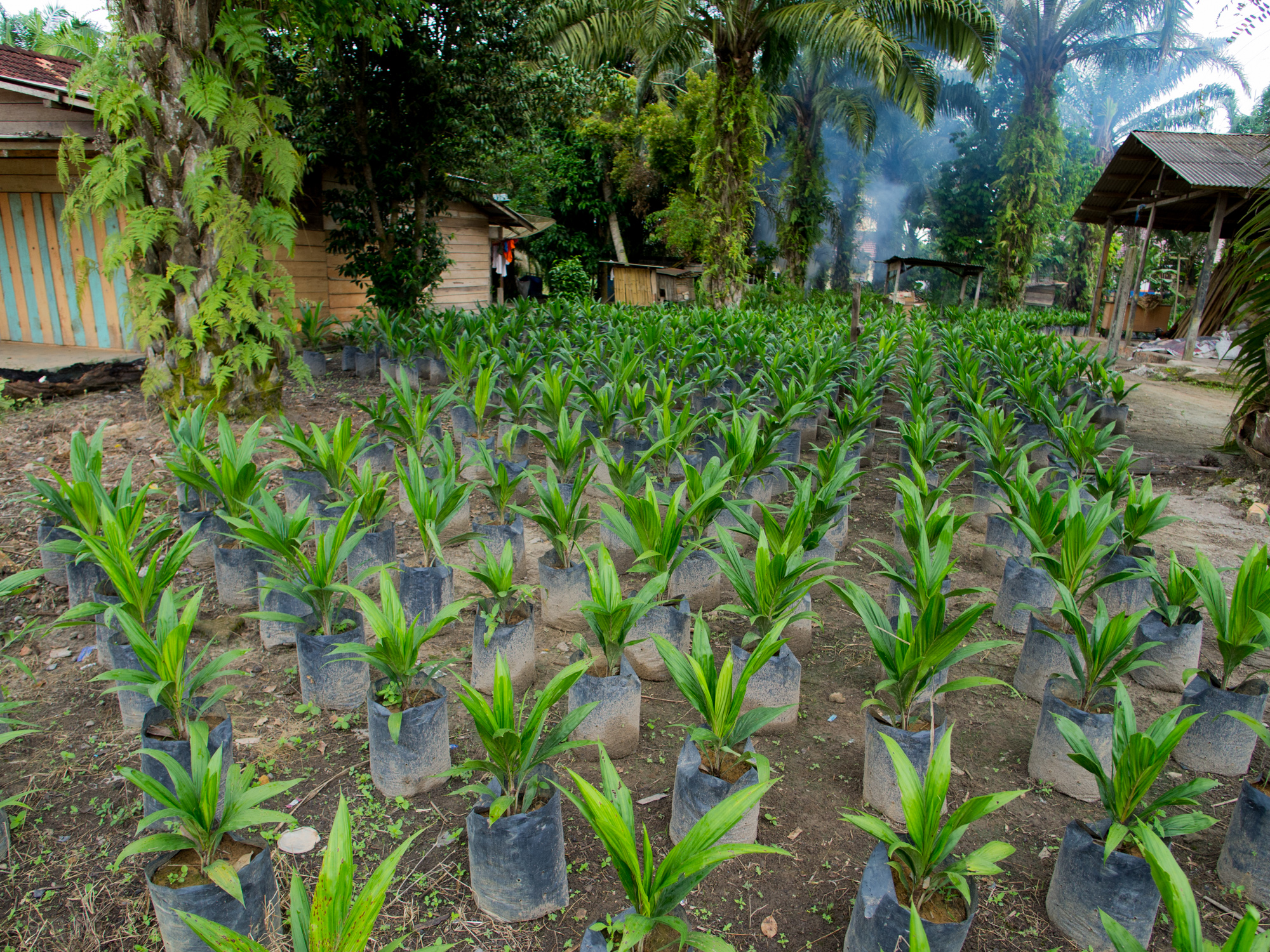In recent years, palm oil has been getting a lot of media attention. Thanks to investigative documentaries, news reports, and photo journalism, the general public has been informed about why it’s so destructive. Palm oil, which is native to Africa, is obliterating the Indonesian rainforests, killing keystone species, and robbing ecosystems of their biodiversity. It’s found in the majority of snacks on American supermarket shelves, but people are becoming wise to it—and yet, certified palm oil is being embraced.
I have a bachelor’s degree in environmental studies, and have been avoiding palm oil for six years. I am relieved to see the raised awareness about the general industry, but when it comes to certified palm oil? I’m not buying it. Here’s why.
How is palm oil planted and harvested?
Palm oil is a monoculture crop, which means native ecosystems are destroyed, and a single crop is planted instead. This kills the soil, increases rates of erosion, displaces Indigenous people, and kicks out native animal species. In order to plant this massive crop, the rainforest is burned. This not only kills the local wildlife (including 200 endangered species), but releases what is essentially a carbon bomb.
To harvest palm oil, the oil is extracted either through squeezing or crushing the fruit—similar to any fruit oil, such as olive.
What is palm oil used for?
Palm oil is used in snacks, animal feed, cosmetics, and even newspaper ink. In other words, it’s everywhere. It’s considered to be the most widely used vegetable oil in the world.
In Africa (and Brazil, a place where many African people ended up due to the slave trade), this has been consumed for a long time. It’s used for cooking and flavoring food, but it also has a violent history in these places. Slave traders used to smear the oil all over the bodies of enslaved people in order to make them look young and desirable. It was also used as nourishment to keep the captives alive over the long journey across the Atlantic.

Why is palm oil so popular?
Palm oil used to be considered an exotic good, but is now the cheapest oil to produce. In the 1900s, it was used to give margarine its yellow tint, and soon it was used as a main ingredient by the French.
Colonizers realized that a huge amount of oil can be produced by one oil palm, so they started overtaking Malaysia and Indonesia with it. A few decades later, these countries were producing more palm oil than the output from the entire continent of Africa. It’s now the cheapest oil on the market.
Another reason why it’s so cheap? Horrible labor conditions for the workers. Even today, investigators are finding working conditions in both African and Southeast Asian plantations to be as bad as they were in the colonial era.
What is needed for palm oil to be certified?
Like diamonds and tuna, certification for palm oil is achieved through vague standards through an organization (RSPO). Planters have to pay for certification (which eliminates any small farmers who are actually planting it the old way), and they can’t deforest in “high conservation value areas”—a term without any concrete definition, or legal regulation.
Simply put, palm oil producers can mix “clean” oil with uncertified oil, can violate human rights, can deforest and burn down vital ecosystems, and can still be certified. It’s basically a way to appease protestors, and make consumers feel better about their purchase (and charge them more for it), without improving the product itself.
Can palm oil be sustainable?
The truth is, it can. The fruit itself is highly efficient, and people have been using it for over 5,000 years. There are farmers in Brazil who grow it the old way, harvest it slowly, and don’t deforest in order to plant. Brazilians eat many foods fried in the oil, and it’s a part of their culinary ecosystem.
There are always going to be a few farms in Africa, and tropical Asia as well, where good practices are utilized. The issue is that they can’t get certified due to the high cost, larger corporations are shutting them out of the market, and it’s impossible to tell what they’re actually doing even if they do get certified.
Should you buy palm oil?
My opinion is that there are three instances when buying palm oil is the right move:
- It’s verifiably from Brazil. There is a high chance that it’s produced ethically, sustainably, and mindfully. It’s also an important part of the culture, as it’s a way that Brazilians honor their ancestry.
- You have seen the plantation yourself, or know the people who run it. Otherwise, even certification is vague and meaningless.
- There are no other options. Sometimes you might not have access to an alternative product. For example, many affordable vegan butter sticks have palm oil in them. In that case, get what you can afford or what is available to you.
I choose not to buy certified or uncertified palm oil, except in these three cases. It’s not on my shoulders to change the industry, but I believe that we should do what we can as individuals. This acts as powerful signaling to corporations, politicians, and international leaders. Also as a vegan, I consider it to be a part of my diet to not consume it, due to its high cost of animal lives.

Palm oil is unavoidable at times, but when there are other options, the best option is those options.
Get more like this—Sign up for our daily inspirational newsletter for exclusive content!
__
Photo: Craig Morey; Emily Iris Degn; Aul Rah






